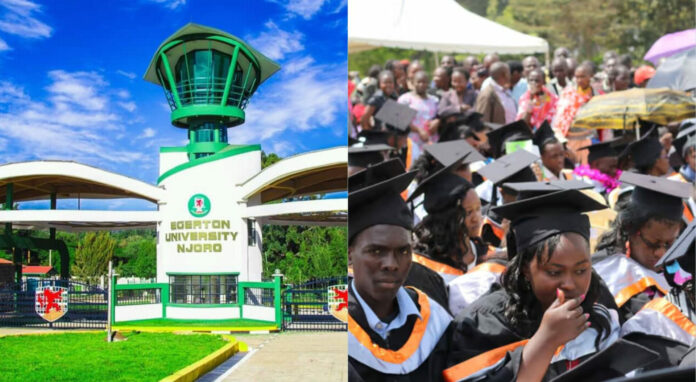On August 12th, 2024, a landmark decision was made by the High Court of Kenya’s Constitutional and Human Rights Division in Nairobi, directing Egerton University to provide remedial courses for students who were enrolled in unaccredited engineering programs between 2014 and 2019.
This follows a petition filed by two student representatives, Ian Nyagah and Henry Mulyungi on behalf of 55 other students who face economic loss and diminished career growth prospects.
They complained that their degrees lacked accreditation thus preventing them from registering as graduate engineers with the Engineers Board of Kenya. Some of the courses these students took include:
- Bachelor of Science in Water and Environmental Engineering
- Instrumentation and Control Engineering
- Manufacturing Engineering and Technology
The court ruled that the institution had violated the student’s consumer rights by providing courses that failed to meet the EBK’s accreditation standards. It also clarified the roles of the Commission for University Education (CUE) and the EBK in accrediting programs.
CUE is tasked with the accreditation of university programs while the EBK deals specifically with engineering programs to ensure they meet industry standards.
“The gravamen of the petition is the allegation that the 1st respondent offered unaccredited engineering courses to its students who upon graduation, the Engineers Board of Kenya (3rd Respondent), refused to register as graduate engineers thereby denying them a chance of ever becoming engineers,” decreed Justice Lawrence Mugambi during the ruling delivered virtually.
Egerton was henceforth directed to fund the student’s entire cost of remedial courses which must be completed within 3 months or as arranged by the affected students.
Remedial classes in this context refers to additional lessons affected students should partake to meet EBK’s accreditation standards. These courses aim to address deficiencies in the university’s engineering programs.
Amount of money university students with HELB loans are set to pay per course
“An order compelling the 1st Respondent to facilitate the Petitioners and all the affected students to undertake remedial courses recommended by the 3rd Respondent. The cost shall be fully covered by the 1st Respondent and the same should be within the next three (3) months or where applicable over such a period as may be individually agreed between each of the affected students and the 1st Respondent,” he said.
Students who studied engineering at Egerton within the 5 year period have been unable to register with EBK and thus failed to work as professional engineers in Kenya.
The court instructed CUE to stop accrediting engineering courses in Kenya without receivving input and approval from the Engineering Board of Kenya.
The ruling seeks to protect students’ rights within Kenya’s higher education systems to ensure they receive appropriate training for professional registration. It also asserts the judiciary’s role in ensuring education institutions accountability.








